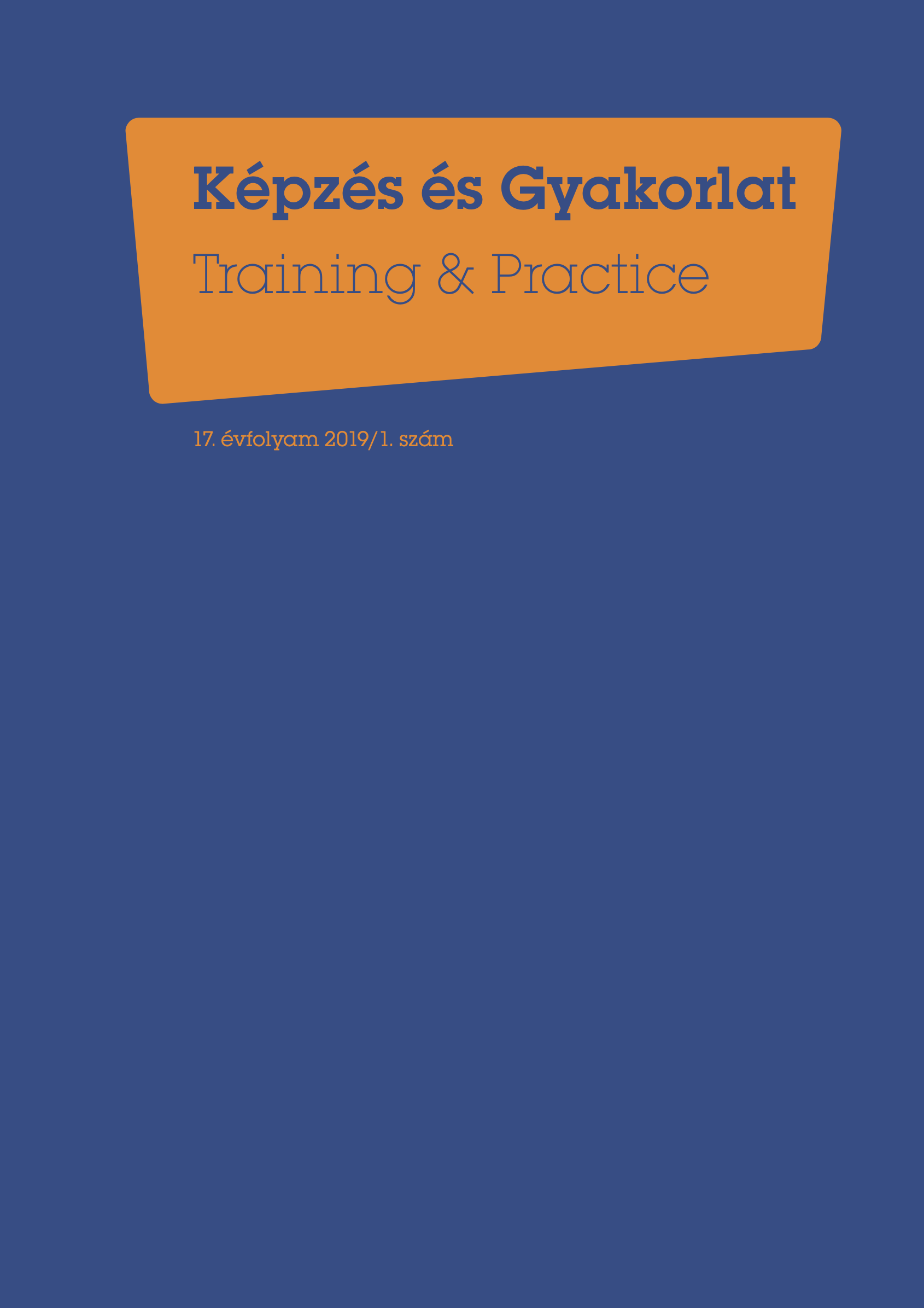Group paper from the students’ point of view
DOI:
https://doi.org/10.17165/TP.2019.1.6Abstract
We live in the era of instant assessment of nearly everything. In our case at the end of a particular period of a project. The institute, the teachers the methods and our students are being evaluated constantly. The performance of the students or a certain topic are closed by a summative (qualifying) evaluation. It is expected by the policy of our school and the syllabus. Moreover, other methods are also acceptable during the lessons, such as formative (developing), diagnostic (situational) and summative (qualifying) ones. However, only the summative grade is recorded in the register. This can be crucial because the grades have enormous impact on the admission to the universities. This means that the methods used in the lessons should be co-ordinated with the ways the tests are composed.
The aim of this paper is to examine this process from the students’ point of view. This was accomplished in two projects.
References
Bábosik, I. (2006). A feladat, mint személyiségfejlesztő tényező. Új Pedagógiai Szemle, 56. évf. 4. sz. [online] http://epa.oszk.hu/00000/00035/00102/2006-04-ta-Babosik-Feladat.html [2018.06.13.]
Brassói, S. ‒ Hunya, M. ‒ Vass, V. (2005). A fejlesztő értékelés: az iskolai tanulás minőségének javítása. Új Pedagógiai Szemle, 55. évf. 7‒8. sz. [online] http://folyoiratok.ofi.hu/uj-pedagogiai-szemle/a-fejleszto-ertekeles-az-iskolai-tanulas-minosegenek-javitasa [2018.04.13.]
Dewey, J. (1912). Az iskola és társadalom. Budapest: Lampel Róbert (Wodianer F. és fiai)
Farkas, A. (2010). Gondolatok a projektmódszer történetéhez. Új Pedagógiai Szemle, 60. évf. 1‒2. sz. [online] http://epa.oszk.hu/00000/00035/00139/pdf/EPA00035_upsz2010_1- 2_208-213.pdf [2018.03.14]
Hegedűs, G. (szerk.,) (2002). Projektpedagógia. Kecskemét: Kecskeméti Főiskola Tanítóképző Főiskolai Kar.
Hortobágyi, K. (1991). Projekt kézikönyv. Budapest: Iskolafejlesztési Alapítvány.
Hortobágyi, K. (1993). Erdei Iskola. Budapest: Iskolafejlesztési Alapítvány.
Horváth, A. (1998). Kooperatív technikák, Hatékonyság a nevelésben. Budapest: Iskolafejlesztési Alapítvány.
Kagan, S. ‒ Kagan, M. (2009). Kooperatív tanulás. Budapest: Önkonet Kft.
Kereszty, Zs. (2009). Szerkesztő az olvasóhoz. In: Kagan, S. ‒ Kagan, M., Kooperatív tanulás. Budapest: Önkonet Kft.
Kilpatrick, W. H. (1918). The project method. Teachers College Record, Vol.19. No. 4. pp. 319‒335. DOI: https://doi.org/10.1177/016146811801900404
Kováts-Németh, M. (2010). Az erdőpedagógiától a környezetpedagógiáig. Pécs: Comenius Kiadó.
Kováts-Németh, M. (2015). Iskolafejlesztés a reformpedagógiában. Győr: Palatia Kiadó.
M. Nádasi, M. (2003). Projektoktatás. Budapest: Gondolat Kiadói Kör – ELTE BTK Neveléstudományi Intézet.
Nagy, L. (1913). Irányok és törekvések az alkotó munka terén. In: Répay, D. és Ballai, K. (szerk.), Az Első Magyar Országos Gyermektanulmányi Kongresszus naplója s a vele kapcsolatos kiállítás leírása. (pp. 280‒288) Budapest: Fritz Ármin Könyvnyomdája.
Szákovicsné Bérczy, D. J. ‒ Schläffer, R. (2017). A környezetpedagógia megjelenése a közoktatásban. In: Hazai és külföldi modellek a Projektoktatásban. (pp. 257‒263) Budapest: Óbudai Egyetem, CD.
Downloads
Published
Issue
Section
License
Copyright (c) 2019 Bérczy Dóra Judit

This work is licensed under a Creative Commons Attribution-NonCommercial-NoDerivatives 4.0 International License.












